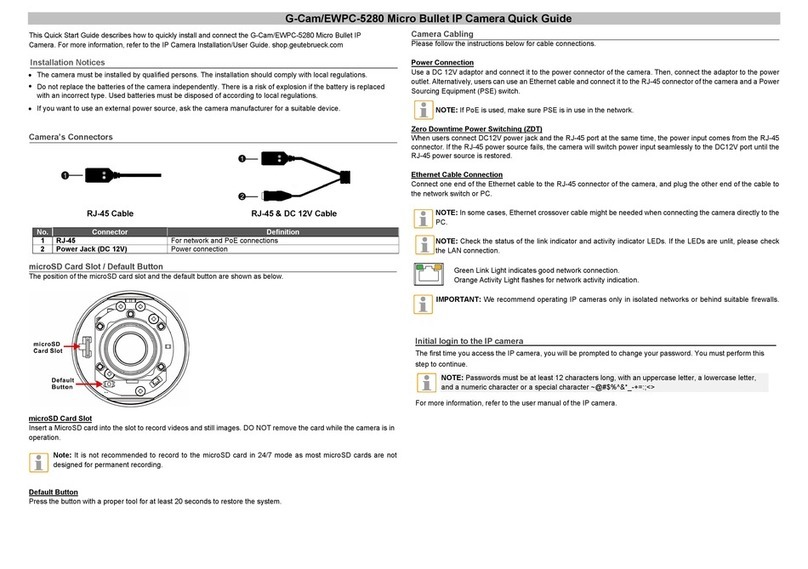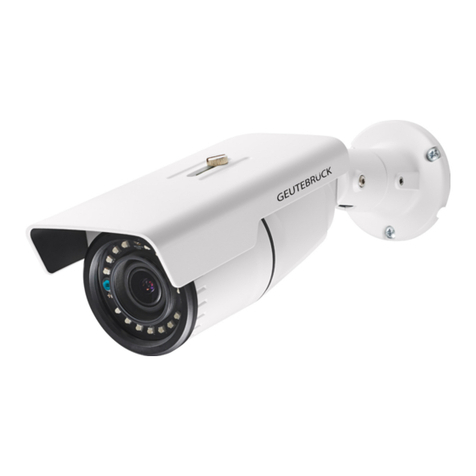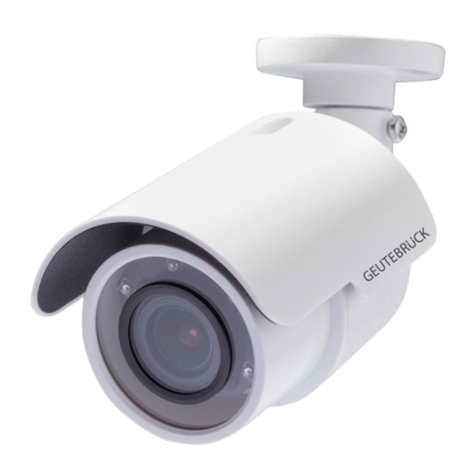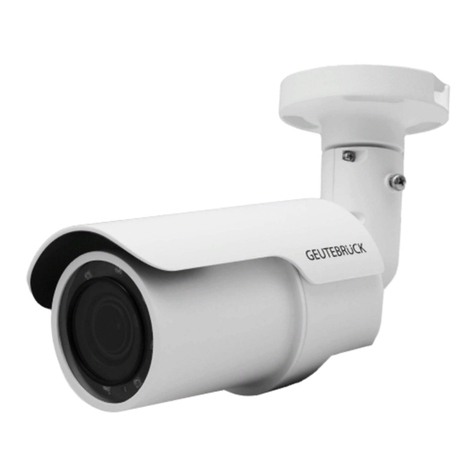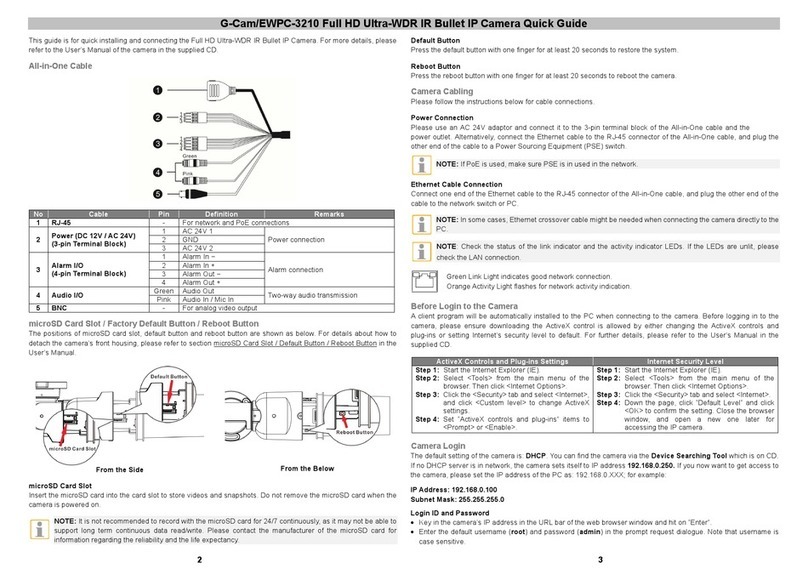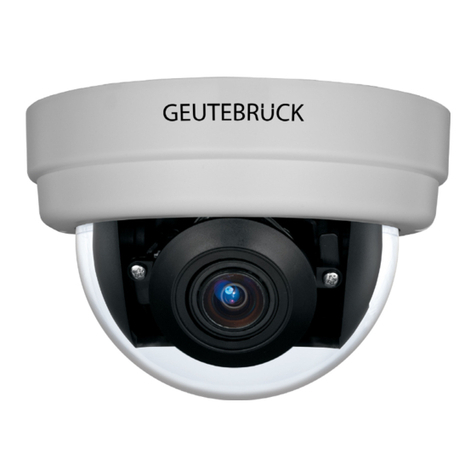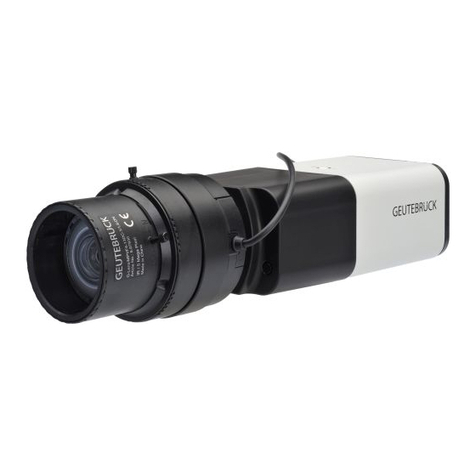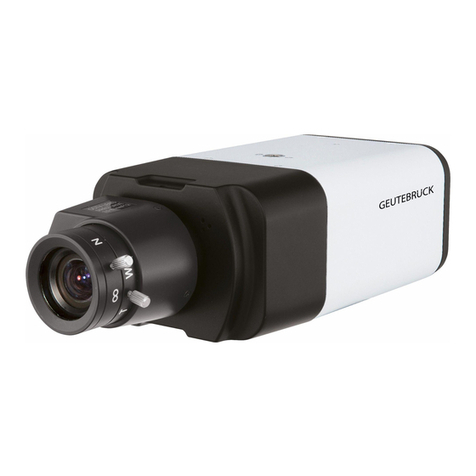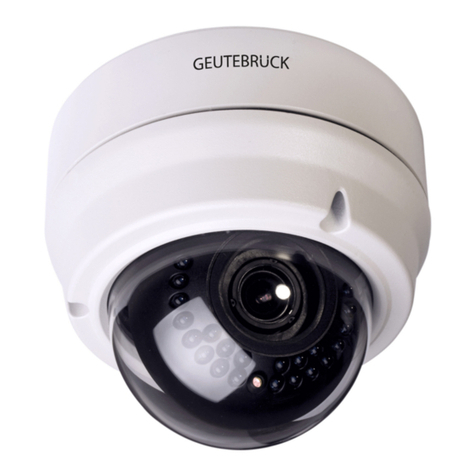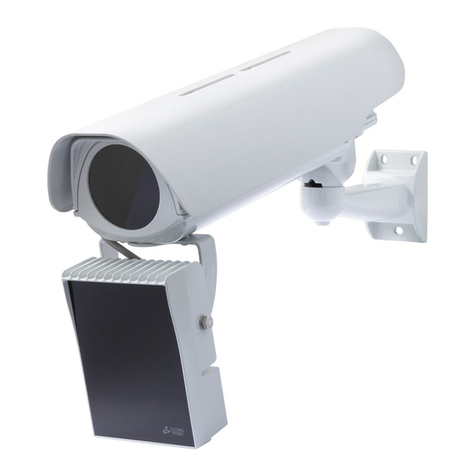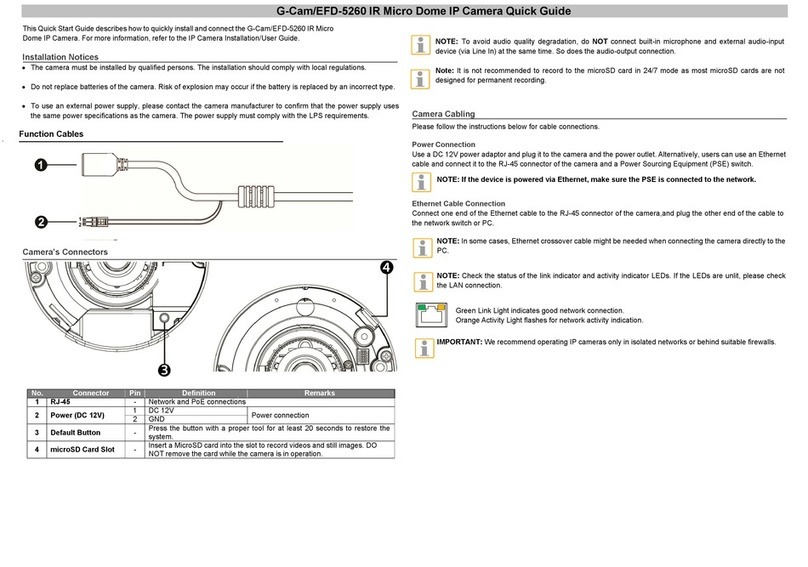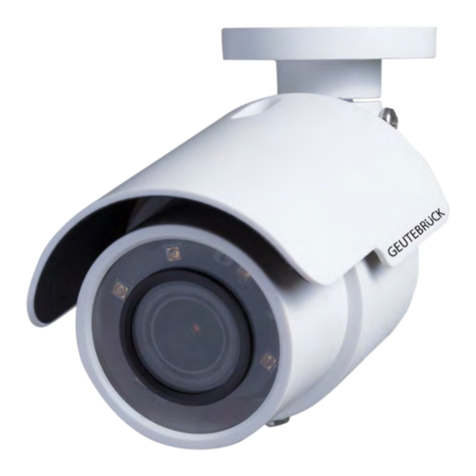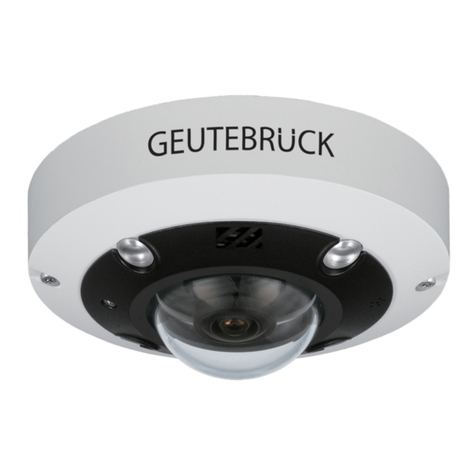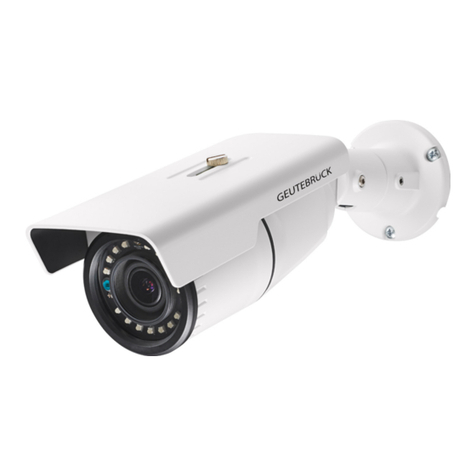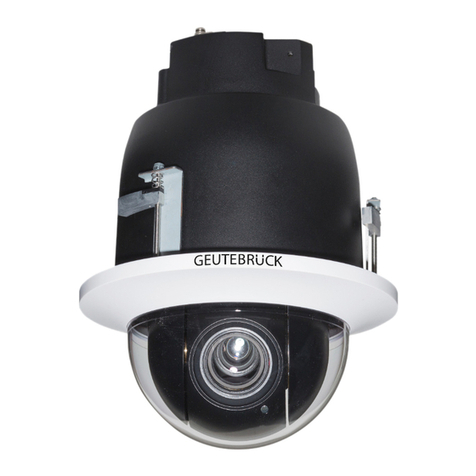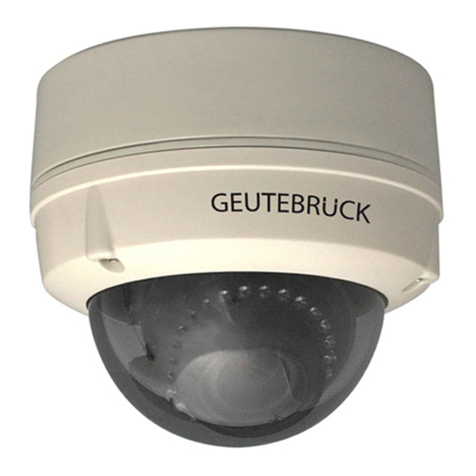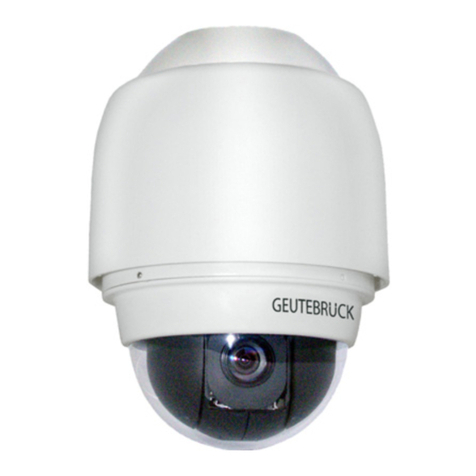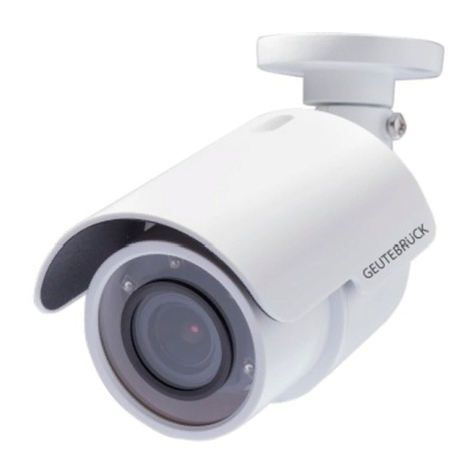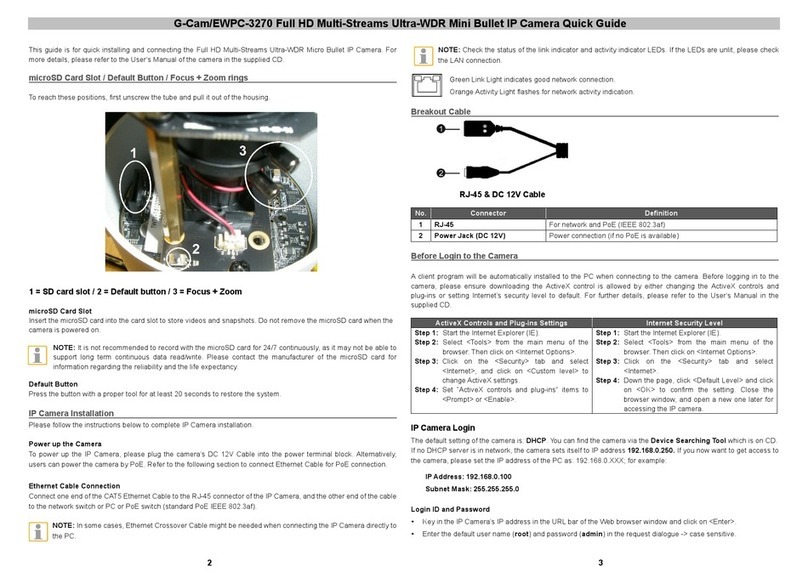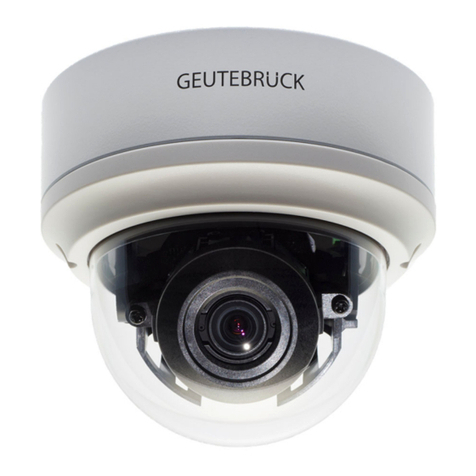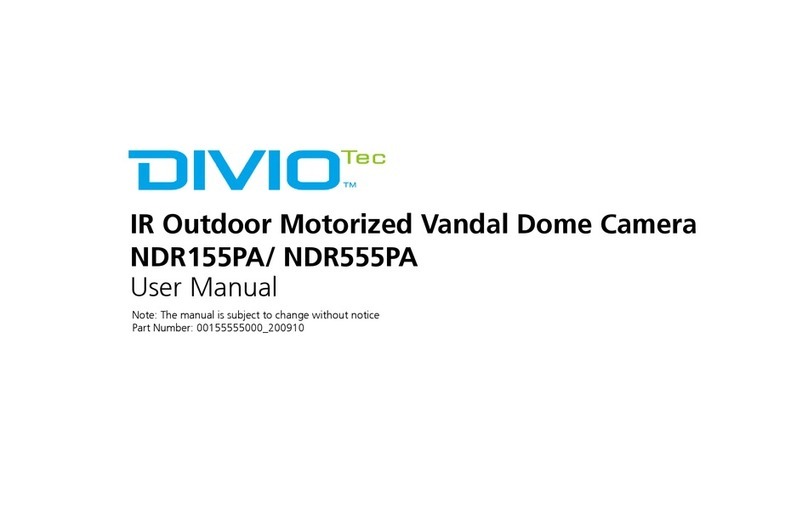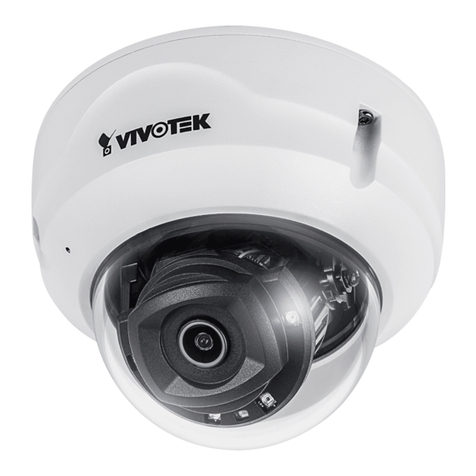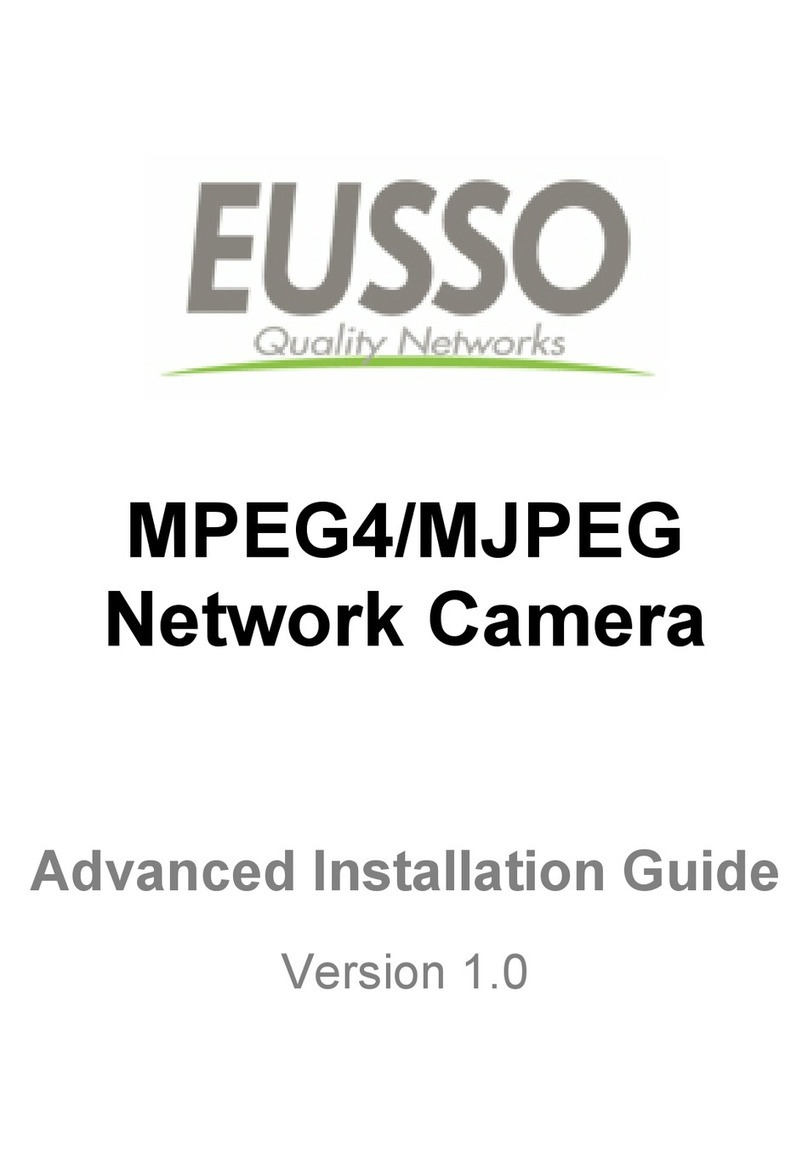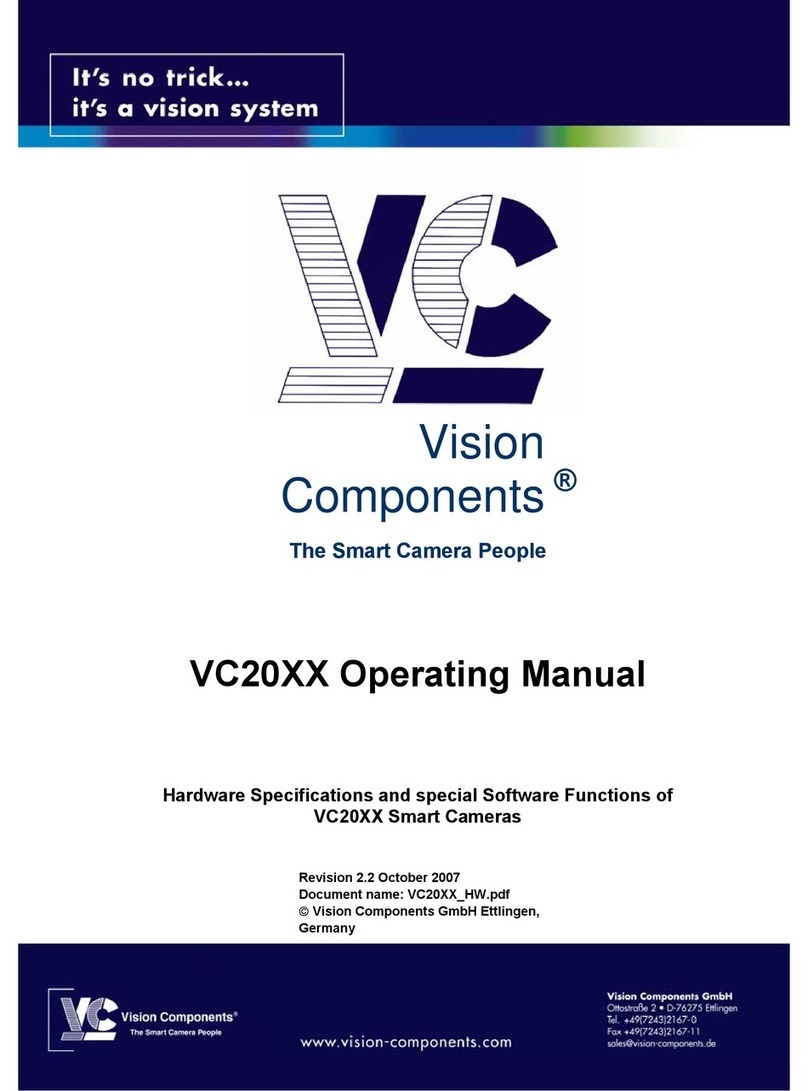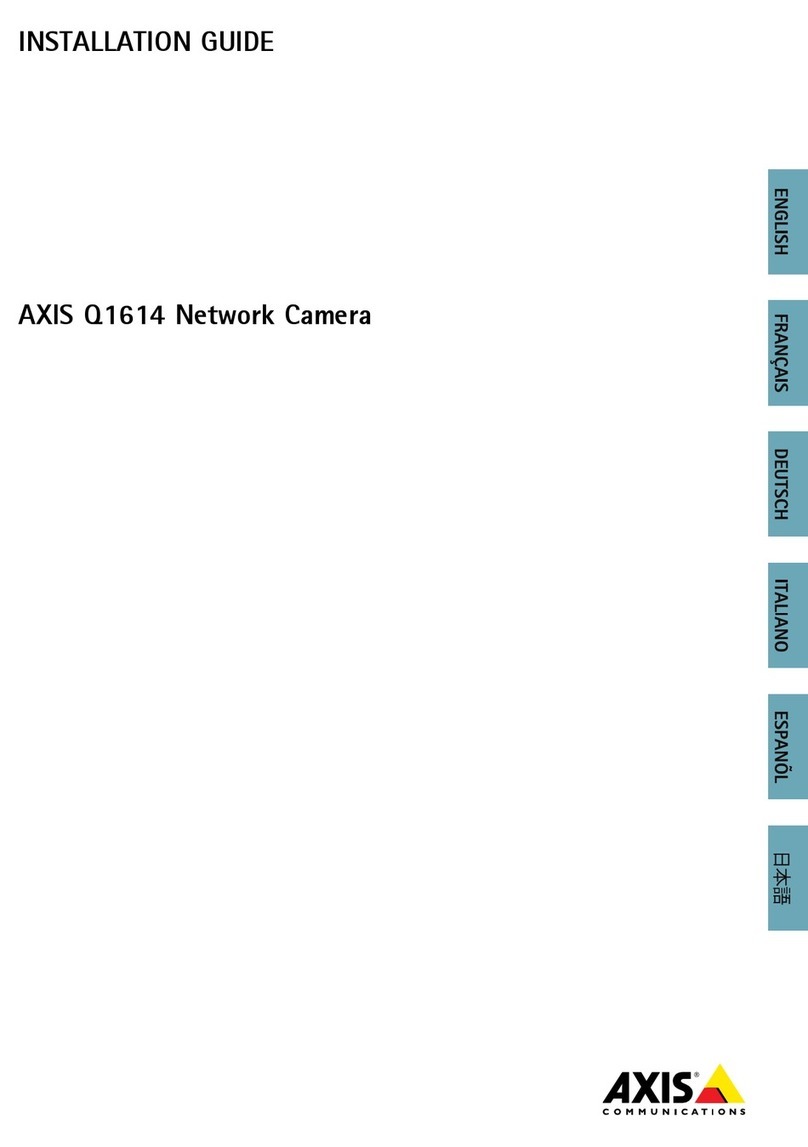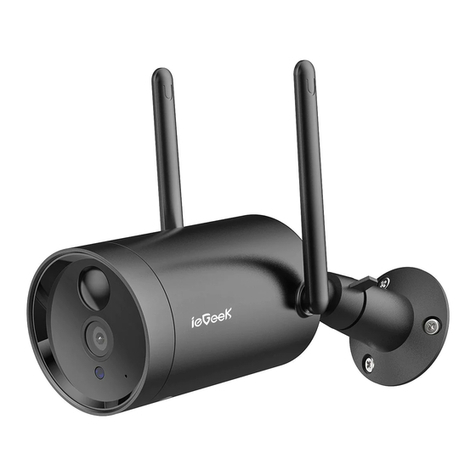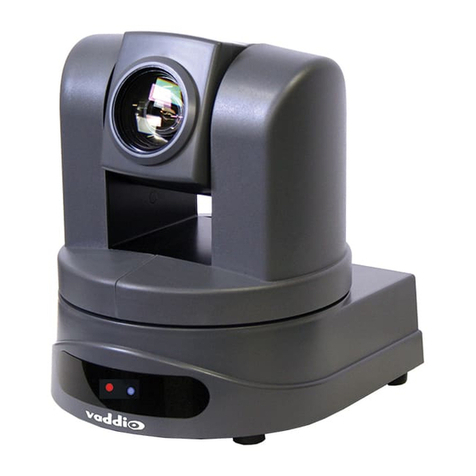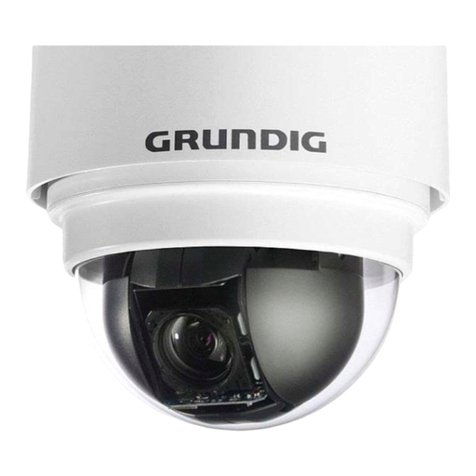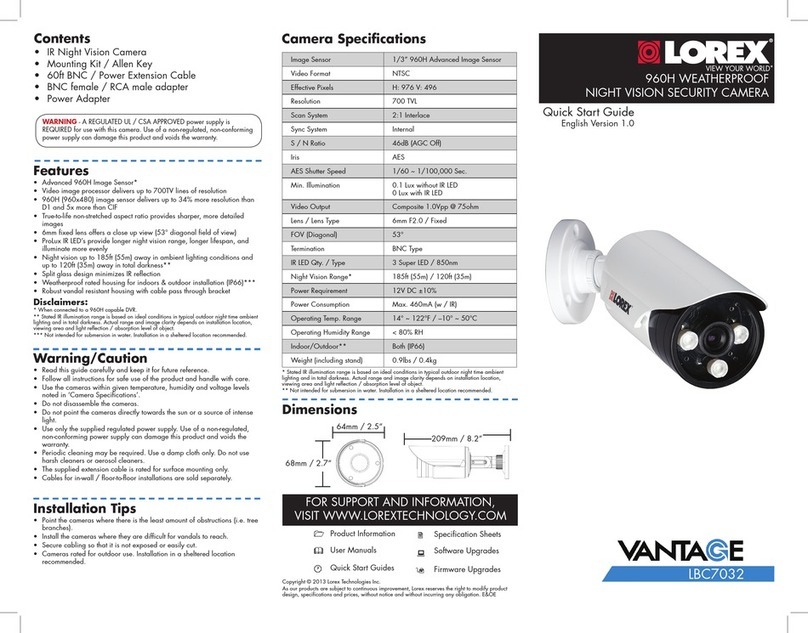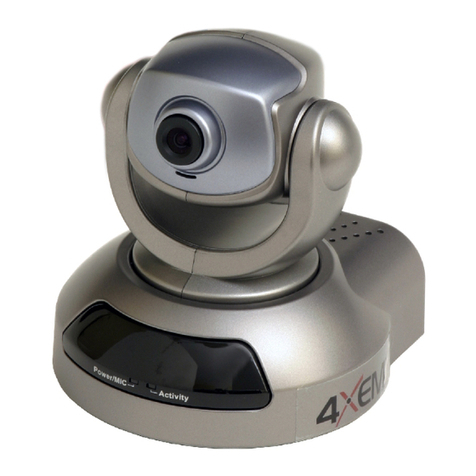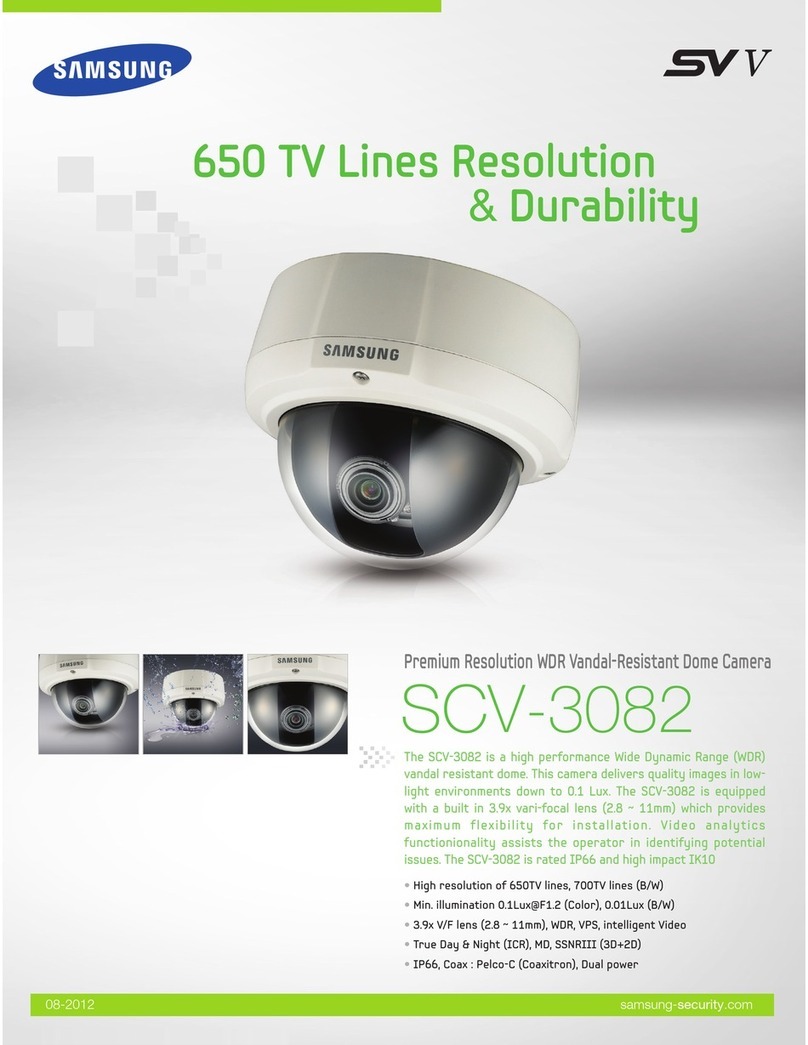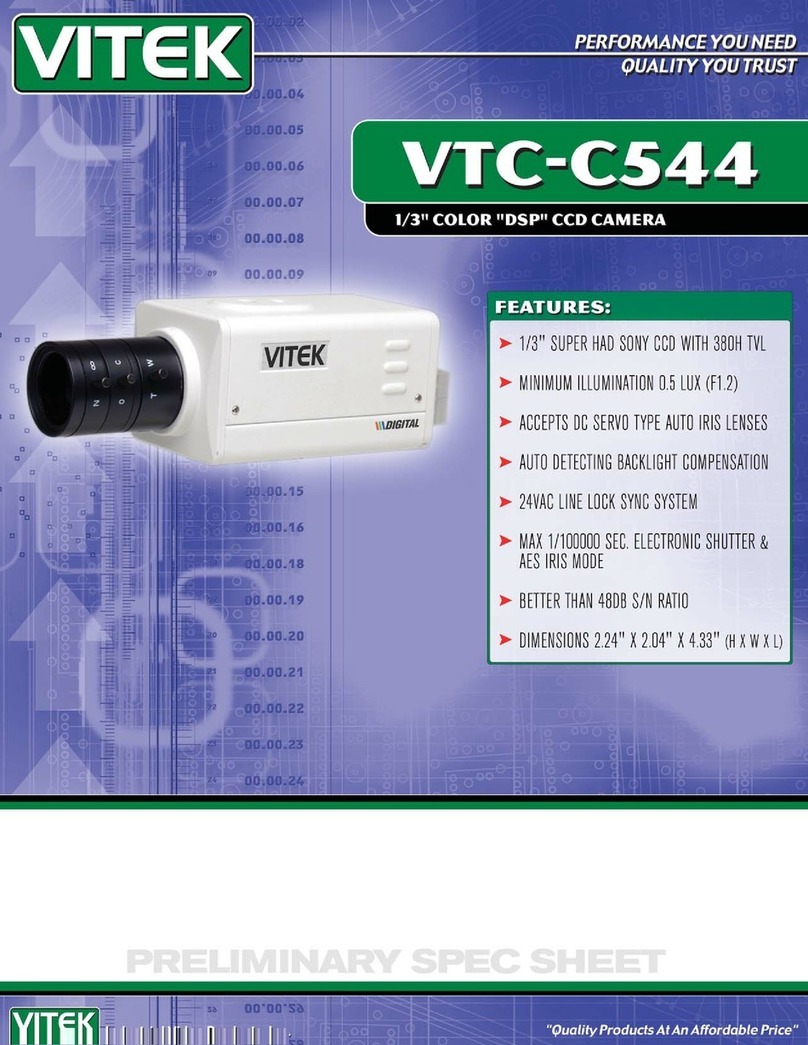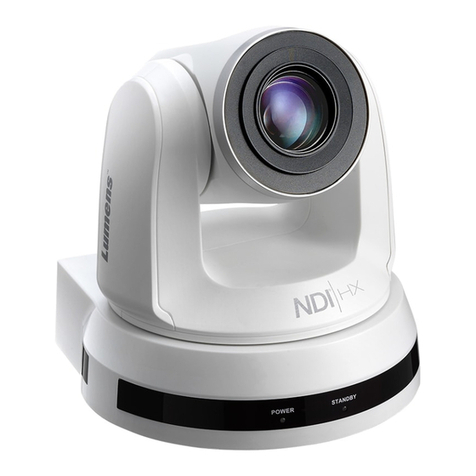
G-Cam/EFD-3271 + EFD-3281 4 MP HDR
Mini-Dome
IP-Camera Quick Guide
2 3
This guide is for quick installing and connecting the 4 MP HDR Mini Rugged Dome IP Camera. For more
details, please refer to the User’s Manual of the camera in the supplied CD.
Camera’s
Connectors
No. Connector Pin Definition Remarks
1 RJ-45 - Network and PoE connection
2
Analog video 1 Video For analog
video output
GND
3 Power
(DC 12V / AC
24V)
1 DC 12V AC 24V 1
Power
connection
2 GND AC 24V 2
4
Default Button
- Press the reboot button with a proper tool for at least
20 seconds to reboot the camera.
5
Alarm & Audio
I/O
1 Audio In L Audio In*
2 Audio In R
3 GND
4 Audio Out L Audio Out*
5 Audio Out R
6 Alarm Out + Alarm
connection
7 Alarm Out −
8 Alarm In +
9 Alarm In −
6
SD Card Slot
- Insert the SD card into the card slot to store videos and
snapshots. Do not remove the SD card when the
camera is powered on.
* Listen only is supported by GEUTEBRUECK DVRs.
NOTE: The model EFD-3281 only owns 1, 4 and 6!
Camera Cabling
Please follow the instructions below for cable connections.
Power Connection
Please use a DC 12V / AC 24V power adaptor and plug it to the camera and the power outlet. Alternatively, users can
use an Ethernet cable and connect it to the RJ-45 connector of the camera and a PoE switch (standard PoE
802.3af).
NOTE: If PoE is used, make sure a PoE switch/adaptor is used in the network.
Ethernetkabel anschließen
Connect one end of the Ethernet cable to the RJ-45 connector of the camera, and plug the other end of the cable to
a PoE network switch.
NOTE: In some cases, Ethernet crossover cable might be needed when connecting the camera directly to
the PC.
NOTE: Check the status of the link indicator and the activity indicator LEDs. If the LEDs are unlit, please
check the LAN connection.
Green Link Light indicates good network connection.
Orange Activity Light flashes for network activity indication.
Before Login to the Camera
A client program will be automatically installed to the PC when connecting to the camera. Before logging in to the
camera, ensure downloading the ActiveX control is allowed by either changing the ActiveX controls and plug-ins or
setting Internet’s security level to default. For further details, please refer to the User’s Manual.
ActiveX Controls and Plug-ins Settings Internet Security Level
Step 1: Start the Internet Explorer (IE).
Step 2: Select <Tools> from the main menu of the
browser. Then click on <Internet Options>.
Step 3: Click on the <Security> tab and select
<Internet>, and click on <Custom level> to
change ActiveX settings.
Step 4: Set “ActiveX controls and plug-ins” items to
<Prompt> or <Enable>
Step 1: Start the Internet Explorer (IE).
Step 2: Select <Tools> from the main menu of the
browser. Then click on <Internet Options>.
Step 3: Click on the <Security> tab and select
<Internet>.
Step 4: Down the page, click <Default Level> and click
on <OK> to confirm the setting. Close the
browser window, and open a new one later for
accessing the IP camera.
Camera Login
The default setting of the camera is DHCP. You can find the camera via the Device Searching Tool, which is on the
CD. If no DHCP server is in netweork, the camera sets itself to IP address 192.168.0.250. If you now want to access
to the camera, please set the IP address of the PC as 192.168.0.XXX; for example:
IP Address: 192.168.0.100
Subnet Mask: 255.255.255.0
Login ID and Password
Key in the camera’s IP address in the URL bar of the web browser window and hit on “Enter”.
Enter the default username (root) and password (admin) in the prompt request dialogue. Note that username is
case sensitive.
Install the ActiveX Control
After connecting to the camera, the request for installing the ActiveX control will appear just below the URL bar.
Right click on the information bar, and then click on <Install ActiveX Control…> to permit ActiveX control installation.
